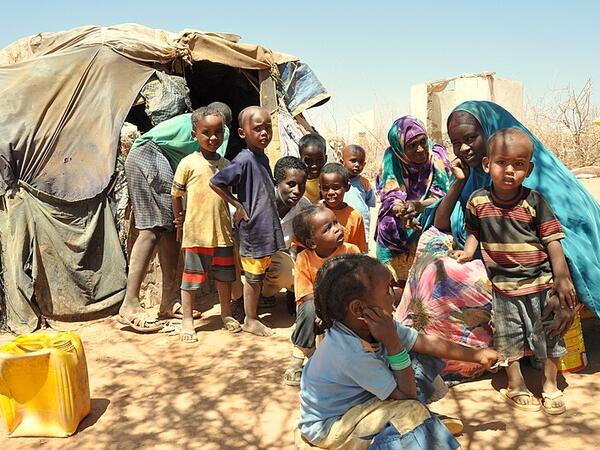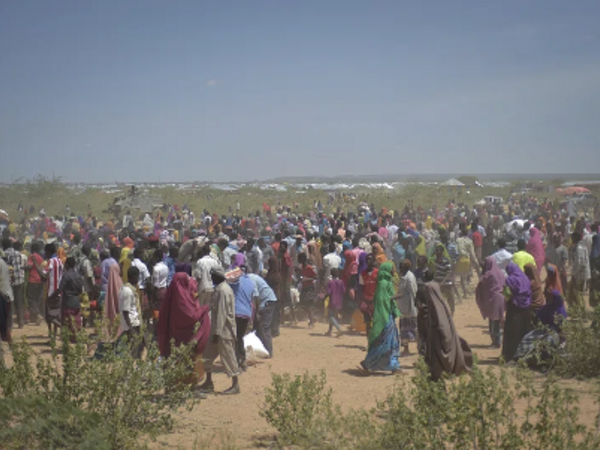Queer Somalis: The cross-cutting nature of human rights in Somalia and beyond
By: Dominik Drabent I Jan. 22, 2024
When discussing human rights and its violations, one can never look at these discourses in isolation from other events occurring. Somalia has not only been plagued by famine, floods, and violence, but the attacks on journalists, the postponement of a National Human Rights Commission, and the abuse of children stand exemplary for the large-scale issues Somalia has in regard to human rights violations. The Civil War that started in the 1980s and 90s has brought turmoil to the lives of many Somalis, and this is especially true for queer Somalis.
According to the Equality Index for LGBTQIA+ rights, Somalia is one of the worst-scoring countries, second to Afghanistan. Article 409 of the Somali Penal Code criminalizes sexual acts between consenting adult partners of the same sex and makes these acts punishable with up to three years of imprisonment. In the regions of Somaliland in the Northwest, homosexuality is punishable with the death sentence. Similarly, this is also the case in the Southern areas of Somalia, which are under the Al Shabaab rule. Al Shaabab is an Islamist group based in Somalia that formed in the early 2000s and aims at overthrowing the central government to establish an Islamic state that follows their version of sharia law, which would have devastating consequences for girls, women, and queer people.
In addition to legislation, the practice of Female Genital Mutilation (FGM) is widespread in Somalia and serves as a tool to control women's sexuality, including those who identify as queer, which directly intersects with anti-LGBTQIA+ attitudes.
Somalia is not in isolation from these human rights violations. Its regional neighbors also violate the rights of humans within their borders. While not subject to the death penalty, homosexuality is criminalized in Kenya and Ethiopia and highly stigmatized in Djibouti. Lately, these countries have experienced a surge in anti-LGBTQIA+ sentiments. Similarly, FGM is practiced to varying degrees in these countries as well as a form of sexual control and policing.
These human rights violations happen within a context that directly impacts how human rights play out. In Somalia, climate change and its aftermath in the form of droughts and floods influence politics and sharpen the fights over resources. These natural disasters are often a main reason people migrate. The limitations of freedom of speech hinder a change in societal perceptions on topics such as queerness and FGM. Furthermore, girls’ and women's rights are tied to the control of their bodies and sexuality, which, in turn, also impacts queer Somalis and their lives. Thus, for some, it leads them to make the difficult decision to leave Somalia.
However, migration decisions might not always be based on sexuality or gender non-conformity. Additionally, the new contexts, even though different from those in Somalia, have their own challenges and infringements on human dignity for queer Somalis. With this brief overview of the current situation in Somalia and the experiences of some queer Somalis, it becomes clear that human rights often intersect with other events, such as natural disasters.
There Is More to It Than Simply Anti-LGBTQIA+ Legislation
In 2022, over 43,000 people died from the drought in parts of Somalia. Simultaneously, climate change impacts, such as intense flooding, hit Somalia hard. These climate-related events lead to internal displacement and prevent children from attending school and receiving education. According to the United Nations Migration Agency, 3.8 million people are displaced, and many of those are women and children, but also queer Somalis.
Isha Dyfan, the Independent Expert of the United Nations, recently stated that “it is important to recall the cross-cutting nature of human rights. The struggles against armed groups, [for] peace, security, development, humanitarian action, climate change and the environment cannot be addressed in isolation from human rights.” Here, Dyfan emphasizes the intersections human rights can have with other issues. The decision to depart Somalia as a refugee can have different reasons and is not always based on one’s sexual or gender identity. However, for queer migrants, this still means that they must hide a part of themselves to avoid becoming targets for queerphobic violence and receive the support they need from their peers or their host nations to survive.



